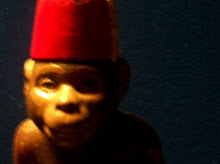Plucking out some good stuff here:
on religion (and writing): "I don’t like categories like religious and not religious. As soon as religion draws a line around itself it becomes falsified. It seems to me that anything that is written compassionately and perceptively probably satisfies every definition of religious whether a writer intends it to be religious or not. "
on the narrative of decline:
At the same time, there has always been a basic human tendency toward a dubious notion of beauty. Think about cultures that rarify themselves into courts in which people paint themselves with lead paint and get dumber by the day, or women have ribs removed to have their waists cinched tighter. There’s no question that we have our versions of that now. The most destructive thing we can do is act as though this is some sign of cultural, spiritual decay rather than humans just acting human, which is what we’re doing most of the time.on religion as a framing mechanism:
Religion is a framing mechanism. It is a language of orientation that presents itself as a series of questions. It talks about the arc of life and the quality of experience in ways that I’ve found fruitful to think about. Religion has been profoundly effective in enlarging human imagination and expression. It’s only very recently that you couldn’t see how the high arts are intimately connected to religion.on fear and our humanity:
There was a time when people felt as if structure in most forms were a constraint and they attacked it, which in a culture is like an autoimmune problem: the organism is not allowing itself the conditions of its own existence. We’re cultural creatures and meaning doesn’t simply generate itself out of thin air; it’s sustained by a cultural framework. It’s like deciding how much more interesting it would be if you had no skeleton: you could just slide under the door.
People are frightened of themselves. It’s like Freud saying that the best thing is to have no sensation at all, as if we’re supposed to live painlessly and unconsciously in the world. I have a much different view. The ancients are right: the dear old human experience is a singular, difficult, shadowed, brilliant experience that does not resolve into being comfortable in the world. The valley of the shadow is part of that, and you are depriving yourself if you do not experience what humankind has experienced, including doubt and sorrow. We experience pain and difficulty as failure instead of saying, I will pass through this, everyone I have ever admired has passed through this, music has come out of this, literature has come out of it. We should think of our humanity as a privilege.on the arbitrariness of being: "No physicist can tell you why things persist as they are, why one moment follows another. The reality we inhabit and treat like an old shoe is amazingly arbitrary. "
And that's really just scratching the surface. It's well worth the read even, I think, if you aren't familiar with her work.
* (A tangent here: I did not like Home. This was especially disappointing to me as I really liked Housekeeping and loved Gilead. I thought Home was well written, and successful as far as that goes, I just did not like it. And that's ok of course. On some level it doesn't matter at all. I frequently found myself angry at the characters, incredulous at their failure to realize their own roles in their problems, and I realize that this is much like life, and perhaps says more about me than the novel. It's good that I did not live in a small town in Iowa in the middle of the twentieth century. Of course I wouldn't have been me then would I?)


